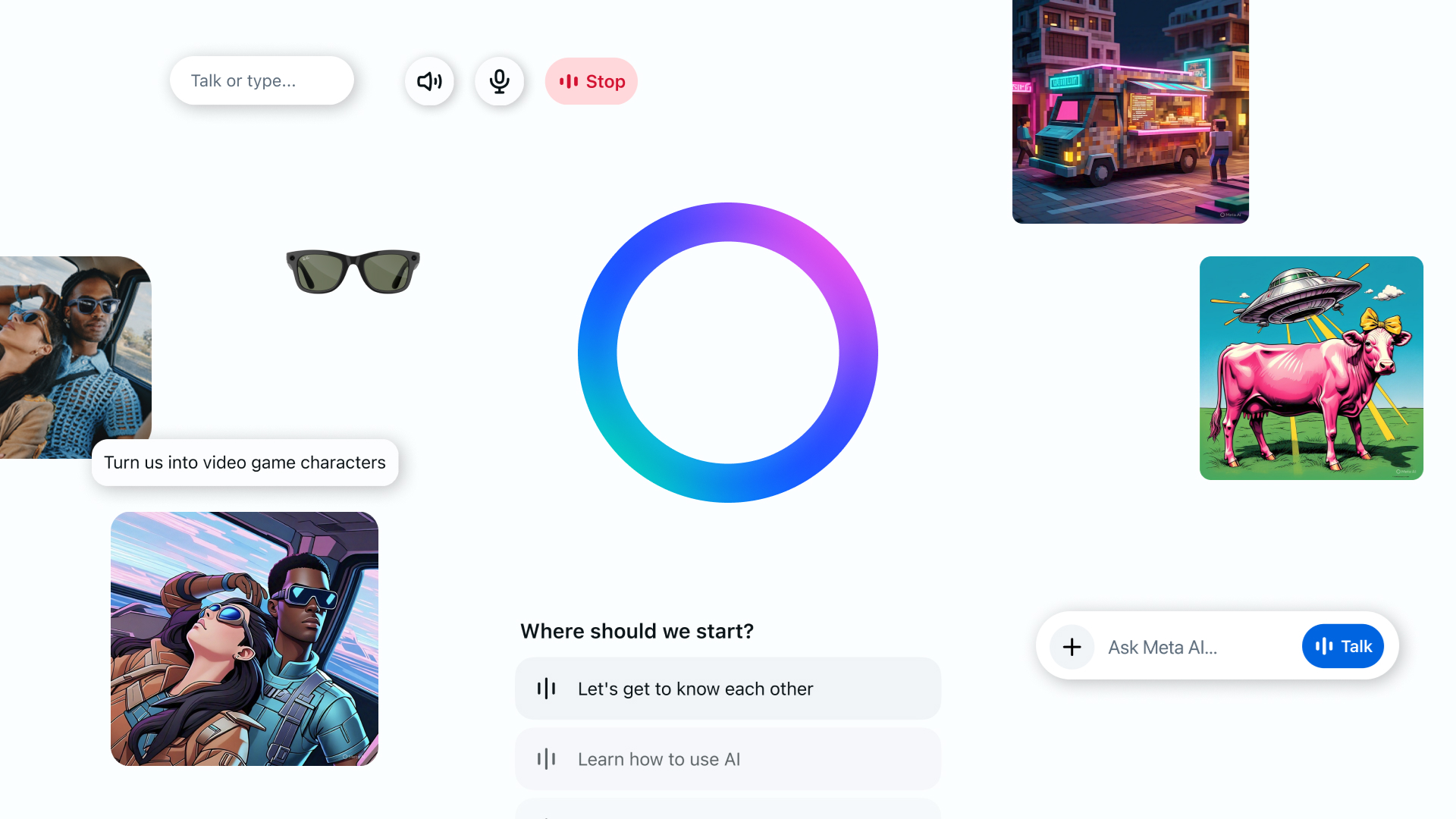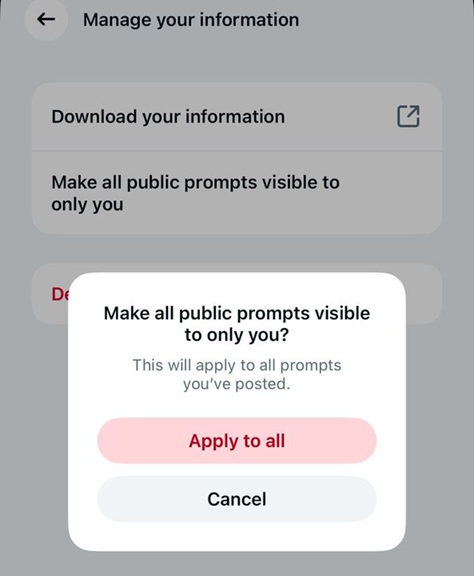I don't like the idea of my conversations with Meta AI being public – here's how you can opt out
Keep your AI chats out of the Meta AI Discovery feed

Sign up for breaking news, reviews, opinion, top tech deals, and more.
You are now subscribed
Your newsletter sign-up was successful
- Meta AI prompts you to choose to post publicly in the app's Discovery feed by default
- Meta has a new warning pop-up, but accidental sharing remains a possibility
- You can opt out of having your conversations go public entirely through the Meta AI app’s settings
The Meta AI app's somewhat unique contribution to the AI chatbot app space is the Discovery feed, which allows people to show off the interesting things they are doing with the AI assistant.
However, it turns out that many people were unaware that they weren't just posting those prompts and conversation snippets for themselves or their friends to see. When you tap "Share" and "Post to feed," you're sharing those chats with everyone, much like a public Facebook post.
The Discovery feed is an oddity in some ways, a graft of the AI chatbot experience on a more classic social media structure. You’ll find AI-generated images of surprisingly human robots, terribly designed inspirational quote images, and more than a few examples of the kind of prompts the average person does not want just anyone seeing.
I've scrolled past people asking Meta AI to explain their anxiety dreams, draft eulogies, and brainstorm wedding proposals. It's voyeuristic, and not in the performative way of most social media; it's real and personal.
It seems that many people assumed sharing those posts was more like saving them for later perusal, rather than offering the world a peek at whatever awkward experiments with the AI you are conducting. Meta has hastily added a new pop-up warning to the process, making it clear that anything you post is public, visible to everyone, and may even appear elsewhere on Meta platforms.
If that warning doesn't seem enough to ensure your AI privacy on the app, you can opt out of the Discovery feed completely. Here's how to ensure your chats aren’t one accidental tap away from public display.

- Open the Meta AI app.
- Tap your profile picture or initials, whichever represents your digital self.
- Tap on "Data and Privacy" and "Manage Your Information."
- Tao on "Make all public prompts visible to only you," and then "Apply to all" in the pop-up. This will ensure that when you share a prompt, only you will be able to see it.
- If that doesn't seem like enough, you can completely erase the record of any interaction you've had with Meta AI by tapping "Delete all prompts." That includes any prompt you've written, regardless of whether it's been posted, so be certain.
Private prompts
Of course, even with the opt-out enabled and your conversations with Meta AI no longer public, Meta still retains the right to use your chats to improve its models.
Sign up for breaking news, reviews, opinion, top tech deals, and more.
It's common among all the big AI providers. That's supposedly anonymized and doesn't involve essentially publishing your private messages, but theoretically, what you and Meta AI say to each other could appear in a chat with someone else entirely in some form.
It's a paradox in that the more data AI models have, the better they perform, but people are reluctant to share too much with an algorithm. There was a minor furor when, for a brief period, ChatGPT conversations became visible to other users under certain conditions. It's the other edge of the ubiquitous “we may use your data to improve our systems” statement in every terms of service.
Meta’s Discovery feed simply removes the mask, inviting you to post and making it easy for others to see. AI systems are evolving faster than our understanding of them, hence the constant drumbeat about transparency. The idea is that the average user, unaware of the hidden complexities of AI, should be informed of how their data is being saved and used.
However, given how most companies typically address these kinds of issues, Meta is likely to stick to its strategy of fine-tuning its privacy options in response to user outcry. And maybe remember that if you’re going to tell your deepest dreams to an AI chatbot, make sure it’s not going to share the details with the world.
You might also like
- I tried the new Meta AI app and it's like ChatGPT for people who like to overshare
- Mark Zuckerberg wants everyone to have AI friends, but I think he's missing the point of AI, and the point of friendship
- Meta AI is now the friend that remembers everything about you
- Meta wants to fill your social media feeds with bots – here's why I think it's wrong

Eric Hal Schwartz is a freelance writer for TechRadar with more than 15 years of experience covering the intersection of the world and technology. For the last five years, he served as head writer for Voicebot.ai and was on the leading edge of reporting on generative AI and large language models. He's since become an expert on the products of generative AI models, such as OpenAI’s ChatGPT, Anthropic’s Claude, Google Gemini, and every other synthetic media tool. His experience runs the gamut of media, including print, digital, broadcast, and live events. Now, he's continuing to tell the stories people want and need to hear about the rapidly evolving AI space and its impact on their lives. Eric is based in New York City.
You must confirm your public display name before commenting
Please logout and then login again, you will then be prompted to enter your display name.